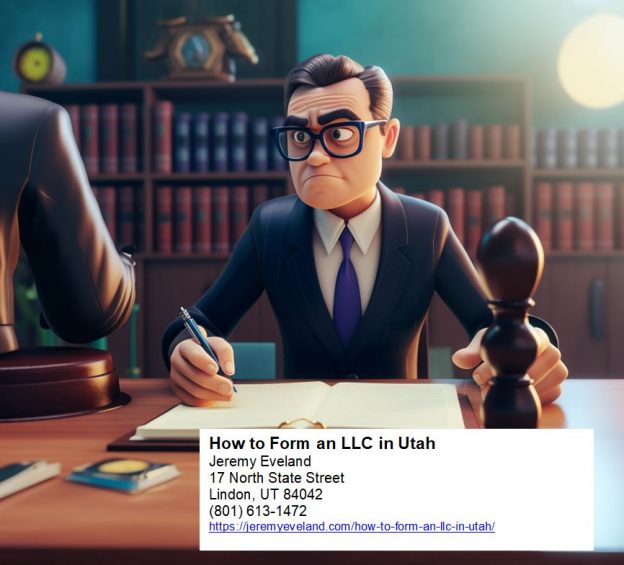Have you ever wondered about the rules and regulations surrounding construction licensing? If so, you’re in the right place. In this article, we will provide you with essential information about construction licensing law and guide you through common legal concerns. Whether you’re a contractor eager to ensure compliance or a homeowner with questions about licensing requirements, we’ve got you covered. Read on to discover everything you need to know and, if you’re ready for personalized assistance, don’t hesitate to reach out to the attorney listed on our website. Your construction licensing journey starts here!
Overview of Construction Licensing Law
Construction licensing law is a set of regulations and requirements that govern the construction industry and ensure that professionals working in this field have the necessary skills and qualifications to carry out their work safely and effectively. These laws vary from state to state, but they generally aim to protect the public from unqualified and unethical contractors.
Reasons for Construction Licensing
The primary reason for construction licensing is to protect consumers. By requiring contractors to obtain a license, the government can ensure that they have met certain standards of competence and professionalism. This helps to prevent unscrupulous individuals from taking advantage of unsuspecting homeowners and businesses.
Another reason for construction licensing is to maintain high-quality standards in the industry. By setting educational and experience requirements, licensing bodies ensure that contractors have the knowledge and skills necessary to complete construction projects to the highest standards.
Construction licensing also promotes fair competition in the industry. By requiring all contractors to meet certain qualifications, licensing laws level the playing field and prevent unqualified contractors from undercutting legitimate businesses.

Benefits of Obtaining a Construction License
Obtaining a construction license comes with several benefits. Firstly, it allows contractors to legally operate their businesses and offer their services to clients. Operating without a license can result in fines, legal repercussions, and damage to a contractor’s reputation.
Having a construction license also provides credibility and trust to potential clients. It demonstrates that the contractor has met certain standards of competency and professionalism, giving clients confidence in their skills and abilities.
Additionally, many government contracts and public projects require contractors to have a valid license. By obtaining a construction license, contractors gain access to a broader range of job opportunities and can bid on lucrative projects.
Licensing Requirements
To obtain a construction license, individuals must typically meet several requirements. These requirements may include educational qualifications, experience and training, passing an examination, and obtaining appropriate insurance and bonding. Let’s take a closer look at each of these requirements:
Educational qualifications
Most construction licensing bodies require applicants to have completed a certain level of education in a relevant field. This could include a degree in construction management, engineering, or a related discipline. The specific educational requirements vary depending on the state and the type of license being applied for.
Experience and training
In addition to education, applicants are often required to demonstrate a certain amount of experience in the construction industry. This can include working under the supervision of a licensed contractor or completing an apprenticeship program. Some licensing bodies may also require applicants to provide evidence of specific training in areas such as safety regulations or construction codes.
Examination
Many states require applicants to pass a licensing examination to demonstrate their knowledge of relevant laws, regulations, and best practices in the construction industry. These examinations typically cover topics such as construction techniques, safety measures, and building codes. The format and content of the exam can vary, but most include both written and practical components.
Insurance and bonding
To protect both contractors and their clients, many licensing bodies require contractors to carry liability insurance and obtain a surety bond. Liability insurance provides financial protection in the event of accidents or property damage, while a surety bond guarantees that the contractor will fulfill their contractual obligations.

Different Types of Construction Licenses
There are several different types of construction licenses, each allowing the holder to perform different types of work. The three main types of licenses are:
General contractor license
A general contractor license allows individuals or businesses to engage in general construction work. This includes overseeing and coordinating all aspects of a construction project, from start to finish. General contractors are responsible for managing subcontractors, obtaining permits, and ensuring that the project is completed on time and within budget.
Specialty contractor license
A specialty contractor license allows individuals or businesses to perform specific types of construction work, such as plumbing, electrical, or HVAC installation. These licenses are typically required for trades that involve specialized skills and knowledge.
Subcontractor license
A subcontractor license allows individuals or businesses to provide specialized services or trades to general contractors. Subcontractors work under the supervision of a general contractor and may be responsible for specific aspects of a construction project, such as plumbing, roofing, or painting.
Applying for a Construction License
The process of applying for a construction license can vary depending on the state and the type of license being sought. However, there are some common steps that applicants must typically follow:
Application process
Applicants must complete an application form provided by the licensing authority. This form will ask for personal information, details of education and experience, and any supporting documentation required. Applicants may also need to provide references from previous clients or employers.
Fees and financial requirements
There is usually an application fee associated with obtaining a construction license. The amount of this fee varies depending on the state and the type of license being applied for. Additionally, some licensing bodies may require applicants to demonstrate financial stability and provide evidence of insurance coverage and bonding.
Background checks
Applicants for a construction license are often required to undergo background checks to ensure that they have no criminal history or outstanding legal issues. This is done to protect consumers and ensure that only individuals with good moral character are granted a license.
Maintaining and Renewing a Construction License
Once a construction license is obtained, it is important for contractors to understand the requirements for maintaining and renewing their license. This typically includes:
Continuing education
To ensure that licensed contractors stay up-to-date with the latest industry trends and best practices, many states require them to complete a certain number of hours of continuing education each year. This can involve attending workshops, seminars, or online courses on topics related to construction.
Renewal process
Construction licenses are usually valid for a specific period, typically one to three years, depending on the state. Contractors must submit a renewal application and pay the required fee before their license expires. It is important to renew the license on time to avoid any penalties or disruptions to their business operations.
Penalties for license violations
Failure to comply with the laws and regulations governing construction licensing can result in penalties, including fines, license suspension, or even license revocation. It is essential for contractors to adhere to all requirements and conduct their business in an ethical and responsible manner to maintain their license and protect their professional reputation.
Challenges and Pitfalls in Construction Licensing
While construction licensing provides numerous benefits, there are some challenges and pitfalls that contractors should be aware of. These include:
Unlicensed contractors
One of the biggest challenges in the construction industry is the presence of unlicensed contractors. These individuals or companies operate without the necessary licenses, which puts both consumers and legitimate contractors at risk. It is important for clients to be cautious and verify that a contractor has a valid license before entering into any agreements.
License suspension or revocation
Contractors can face license suspension or revocation if they fail to meet the requirements or engage in unethical or illegal practices. This can have serious consequences for their business and reputation. It is crucial for contractors to comply with all licensing regulations and maintain a high level of professionalism to avoid these penalties.
False or deceptive practices
Some unscrupulous individuals may falsely claim to hold a valid license or engage in deceptive practices to win contracts. These practices can harm both clients and legitimate contractors. It is important for clients to do their due diligence and verify the credentials of any contractor they are considering hiring.
Contract disagreements
Construction projects often involve complex contracts that outline the responsibilities and expectations of both parties. Disagreements or disputes can arise during the course of a project, leading to delays, cost overruns, or even legal action. It is essential for contractors to carefully review and negotiate contracts to minimize the risk of disputes and protect their interests.

Enforcement and Consumer Protection
Enforcement of construction licensing laws is typically carried out by a licensing board or regulatory agency. These bodies are responsible for investigating complaints, conducting audits, and taking disciplinary actions against contractors who violate the licensing requirements. This enforcement helps to protect consumers and maintain the integrity of the construction industry.
Role of the licensing board
The licensing board plays a crucial role in overseeing the implementation and enforcement of construction licensing laws. They review and approve license applications, monitor compliance with licensing requirements, and take appropriate disciplinary actions when necessary. The board also handles consumer complaints and provides guidance and assistance to both contractors and consumers.
Investigations and complaints
When a complaint is filed against a licensed contractor, the licensing board will conduct an investigation to determine if any violations have occurred. This may involve reviewing documents, interviewing witnesses, and conducting site visits. If the contractor is found guilty of misconduct, the board may impose fines, issue a warning or reprimand, or suspend or revoke their license.
Disciplinary actions
The licensing board has the authority to take various disciplinary actions against contractors who violate licensing laws. These actions can include fines, probation, suspension, or revocation of the license. The severity of the disciplinary action depends on the nature and extent of the violation.
Consumer remedies
Consumers who have been harmed by a licensed contractor’s actions may have various remedies available to them. They can file a complaint with the licensing board, pursue legal action to seek compensation for damages, or report the contractor to other relevant authorities, such as the Better Business Bureau or local consumer protection agencies.
Final Thoughts
Construction licensing laws serve a vital role in protecting consumers, ensuring high-quality standards, and promoting fair competition in the construction industry. By obtaining a construction license, contractors gain credibility, access to job opportunities, and the ability to provide their services legally. However, it is essential for contractors to understand and comply with the licensing requirements and operate their businesses ethically and responsibly to avoid penalties or jeopardizing their reputation. Consumers, on the other hand, should always verify a contractor’s license and conduct due diligence before entering into any agreements for construction projects. With the right knowledge and adherence to licensing laws, the construction industry can thrive while protecting the interests of both contractors and consumers.



















